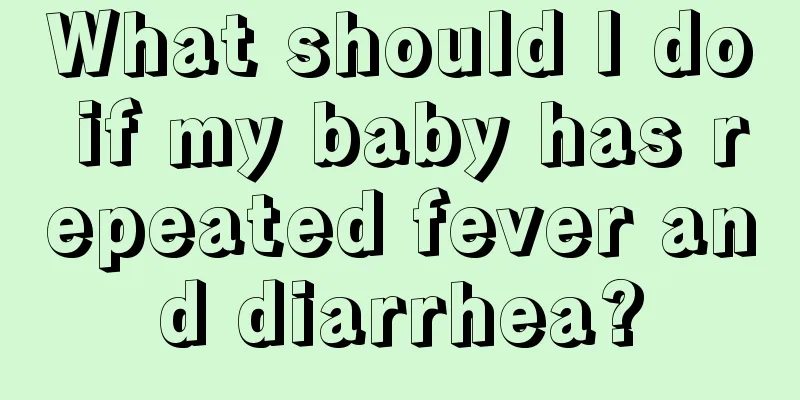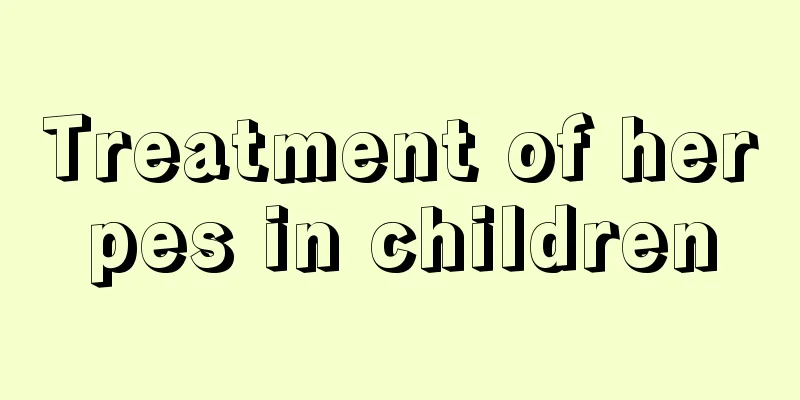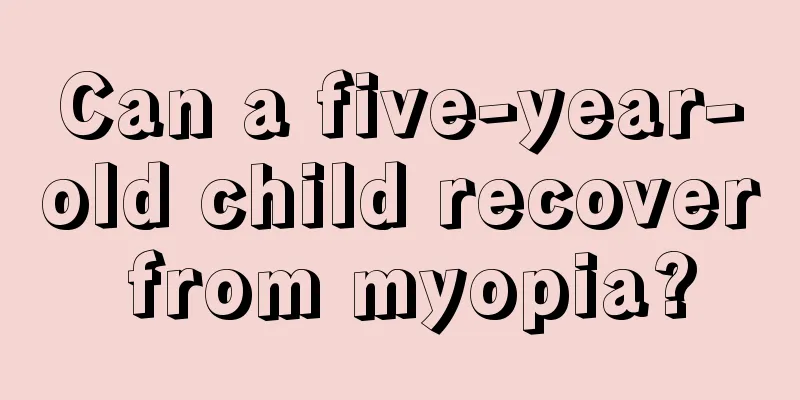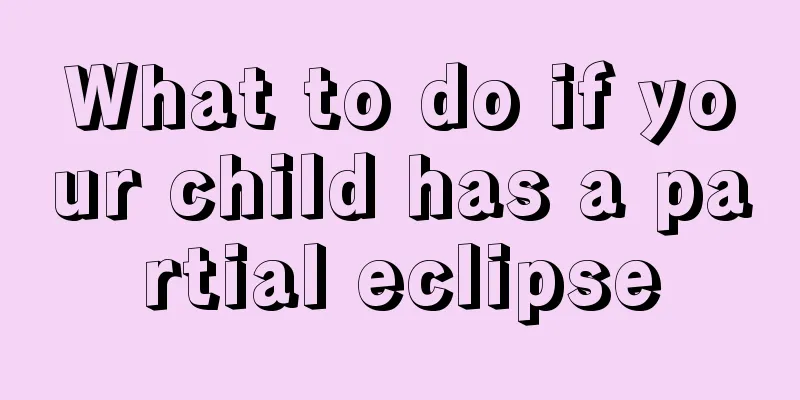What to do if your baby is sick and refuses to take medicine
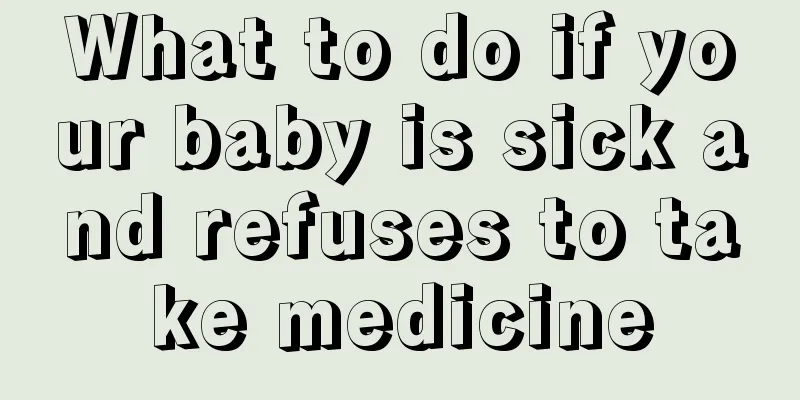
|
Parents are more concerned about their baby's health. It is inevitable that babies will catch a cold if they are too cold or too hot. Parents are anxious when their babies catch a cold. Some babies refuse to take medicine even though their parents feed them medicine. No matter what methods parents use to coax the baby to take the medicine, the baby just refuses to take it. This makes anxious parents at a loss as to what to do. What if the baby is sick and refuses to take medicine? Let’s take a look at it next. 1. Method 1: Feeding medicine from the "lower jaw" will not cause choking When feeding medicine to children, adults refer to the way they take medicine themselves—open their mouths and pour the medicine in. However, children under six months old have imperfect swallowing functions. Although it is simple to force medicine into their mouths, it is inevitable that it may cause choking and vomiting if they are too hasty, which is not a good method. To make it easier for your baby to take medicine, the posture must be correct. First, lift the baby's head and tilt his face to the side. Then insert the spoon or straw from the lower jaw (the side of the mouth close to the lower teeth) and slowly feed the medicine. Do not take out the spoon or straw in a hurry. Wait until the child swallows the medicine. 2. Method 2: What to do if your child vomits after taking medicine When children are young, their swallowing function is poor and they will spit up after drinking milk, and even more so after taking medicine. This kind of vomiting is unconscious. As long as it happens soon after the medicine is given, the vomited amount of medicine must be replenished in time, otherwise the drug effect will not be achieved. However, children over 3 years old who vomit after taking medicine are often spoiled by their parents. Children are unwilling to take the medicine and feel nauseous when taking it. Once this habit is formed, it is difficult to correct, so it is necessary to guide them from an early age, and the methods are similar to those mentioned above. Some children really refuse to take medicine because they think it tastes bitter, especially medicine in tablet form. You can mix it with their favorite fruit juice, honey water, or glucose water. However, the amount of juice or sugar water must be strictly controlled according to the amount on the medicine instructions, otherwise it will be ineffective. Milk may react with medicines and is not recommended to be mixed with medicines. Method 3: Encourage older children to take their own medicine By the age of 2, children have most likely learned to use a spoon by themselves. If the child is sick at this time, unless he is very weak, if his spirit and appetite are good, you can encourage the child to take medicine by himself and give him praise. Once a child feels that taking medicine is a brave thing to do, he or she will not be afraid of taking medicine in the future. However, this depends on subtle influence from an early age. For example, when the child is young, he doesn’t want to take medicine, and the parents don’t have the heart to force him. They think that it doesn’t matter if the child doesn’t want to take the medicine, as he can get an injection if he is sick. As a result, the child is reinforced of the idea of not taking medicine. After all, the side effects and risks of injections are much higher than those of taking medicine. Some parents use medication as a means of punishment. If their children are disobedient, they threaten them with taking medicine and emphasize that it is bitter medicine. Of course, the children will be even more reluctant to take the medicine. When children are 3 to 6 months old, they should be given appropriate amounts of fruit juice and soup with a variety of flavors. Foods like bitter gourd juice, tomato juice, watercress soup, mustard soup (the soup should be boiling without salt), etc., have a slightly sour or bitter taste. This will allow your child to slowly adapt to the taste of different foods, and when they are sick and take medicine, they will naturally not be afraid of the bitter taste. In addition, parents who take the lead in eating everything will also have a good influence on their children. 4. Method 4: Take medicine according to the doctor's instructions The so-called following the doctor's orders means strictly following the doctor's instructions. You must not increase or decrease the amount of medicine the doctor tells you to take, no matter how many times or how much. If you reduce the amount, the medicine will be ineffective, and if you increase the amount, it may cause serious side effects. Each dose needs to be carefully calculated. Only if you vomit immediately after taking the medicine can you replenish the corresponding amount. Otherwise, you should take the required amount. Even if you vomit half an hour after taking the medicine, you don't need to increase the amount. If the doctor prescribes several medicines at once, unless you are told to take them separately, you can usually mix them together, but be careful not to leave them out for too long after mixing them. In addition, Smecta and Ma Dingning must be taken half an hour before meals (including before drinking milk). The former allows the intestinal mucosa to form a protective film, and the latter promotes gastrointestinal emptying. If not taken in advance, there will be no effect. However, multienzyme tablets are appetite stimulants and are only effective when taken with food. Other anti-inflammatory, heat-clearing and fever-reducing medicines can be taken after meals. If your child vomits frequently, it is best to give the medicine between meals. 5. Notes In addition to antipyretics, do not keep your child's medicine at home all the time. If your child is feeling unwell, he or she should see a doctor. Taking medicine under the guidance of a doctor is the safest and most effective. |
<<: What should I do if my baby coughs and vomits after taking medicine?
Recommend
What causes high bilirubin in newborns?
Bilirubin is a relatively common hormone substanc...
Can a three-year-old baby drink milk from a bottle?
Three-year-old babies should no longer use bottle...
Iron supplementation time for premature infants
Premature babies are prone to mineral deficiencie...
What to do if your baby's tongue is black? You should know these methods
Black tongue coating is a symptom, and many facto...
Will children mature early if they drink honey?
It has always been believed that children drinkin...
Is zinc gluconate good for children?
If a child is lacking in glucose and zinc, he or ...
The baby has a brown birthmark on his face, and laser treatment is effective
Many babies have brown birthmarks on their faces ...
What should we do if children have gastrointestinal dysfunction?
Don’t think that gastrointestinal dysfunction is ...
There is a small lump behind the child's ear that does not hurt
We all know that when children are young, they ar...
How to treat a ten-month-old baby with poor appetite
Most babies around ten months old have a poor app...
Is vision screening necessary for premature babies?
Is it necessary to do vision screening for premat...
Can children's cough variant asthma be cured?
Cough variant asthma is a disease with a pathogen...
How should children take care of their oral health?
Children's oral health is very important. It ...
What are the effects of hemolysis on children?
Because the blood types of the mother and fetus a...
Nursing and treatment of hydrotesticular effusion in infants
The phenomenon of hydrotesticular effusion in inf...
